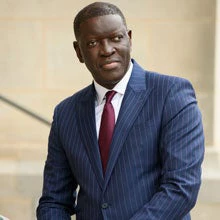 High-level panel from the ICHA conference. Photo: World Bank / 2023
High-level panel from the ICHA conference. Photo: World Bank / 2023
With the world facing profound challenges and rapid changes, the World Bank has committed itself to the vision of a world free of poverty on a livable planet. To truly deliver on this vision, the institution is deepening its partnerships to maximize the impact from its financing, knowledge, and solutions. The same is true for the World Bank’s efforts against corruption. To advance integrity in development, the World Bank is reinvigorating its collaboration with our peer multilateral development banks (MDBs), with entities across the private sector, and with our project implementation partners.
Through its independent Integrity Vice Presidency (INT), the World Bank is significantly engaged with our MDB partners in our fight against corruption in development projects. Central to this engagement is the MDB Agreement for Mutual Enforcement of Debarment Decisions, to which the World Bank has been a party for more than a decade. This robust tool allows our institutions to mutually recognize MDB debarment actions against firms and individuals who have engaged in fraud, corruption, or other sanctionable misconduct in our projects. To date, the World Bank has enforced more than 600 cross-debarment decisions under this agreement, thus significantly strengthening deterrence and raising accountability.
Building on this framework, our institutions have harmonized MDB anticorruption policies and developed common principles that seek to ensure the highest integrity standards in development. This year, our efforts focused on the private sector with the MDB General Principles for Business Integrity Programmes, which outlines best practices for companies and reaffirms the MDBs’ expectation that entities participating in the projects we finance will maintain the highest standards of integrity. Through MDB collaboration, we emphasize that companies and individuals who participate in our projects must not engage in corruption.
Strengthening our integrity and anticorruption efforts also means engaging with a wider audience of private sector actors, empowering them with access to knowledge and tools for mitigating integrity risks. This year, the Integrity Compliance Office within INT launched a new Knowledge Sharing Platform, which promotes integrity through interactive knowledge products and trainings for private sector companies and public sector entities alike. In addition, our office co-organized multiple integrity compliance workshops, including with the African Development Bank for companies working across Africa, as well as with the Inter-American Development Bank and the Spanish government’s ICEX agency for companies working across Latin America. We are also a partner for the upcoming Private Sector Forum, being hosted on the margins of the Conference of the States Parties to the UN Convention against Corruption, to help shape a global business integrity agenda with the private sector as a key contributor to governance and anticorruption standards. Through these engagements, the World Bank aims to emphasize that acting with integrity makes good business sense – in addition to being the right thing to do.
At the bilateral level, INT is working closely with national law enforcement and anticorruption agencies both informally on an ongoing basis and through a broad range of formal Memoranda of Understanding (MOUs), enabling us to build accountability through referrals of corrupt actors for potential prosecution, to exchange intelligence and stem corrupt activities, to share knowledge and best practices, or in some cases to help build anticorruption capacity in World Bank client countries. We have also stepped up our global engagements to strengthen collaborative networks of front-line actors committed to fighting corruption. This year, our International Corruption Hunters Alliance (ICHA) convened more than 350 representatives from over 80 countries who affirmed the critical role of collective action and bolstered global advocacy efforts against corruption.
Even as we reinvigorate our external partnerships, the World Bank’s first line of defense remains the key stakeholders within our institution and the partners who support project implementation. We have thus increased our emphasis on prevention, turning knowledge gained from past corruption investigations into lessons and guidance for World Bank project teams on how to mitigate future integrity risks. We also draw on the insights of operational colleagues to help identify and integrate context-specific risks into our integrity frameworks, such as the unique circumstances of projects in fragile and conflict-affected areas or during emergency response scenarios, so that the World Bank has a stronger sense of the challenges that may arise in these priority situations. Moreover, we regularly support government agencies charged with implementing World Bank-financed projects to help build their capacity for identifying and managing integrity risks. Through these efforts, we help to shape the systems and structures that can prevent corruption from occurring in the first place.
Through its efforts to combat corruption, the World Bank remains committed to deepening its partnerships to provide the knowledge, tools, and networks to ensure accountability, transparency, and integrity – within development and beyond.


Join the Conversation